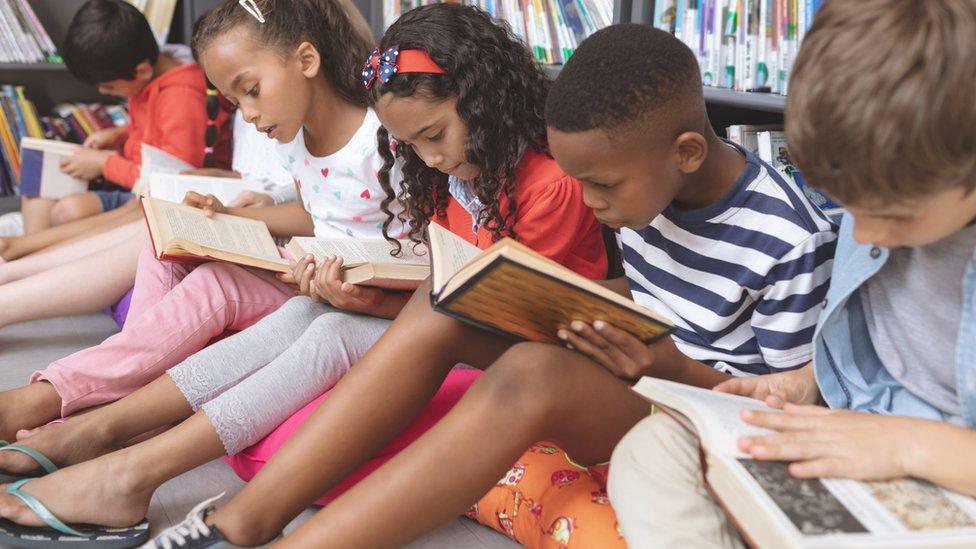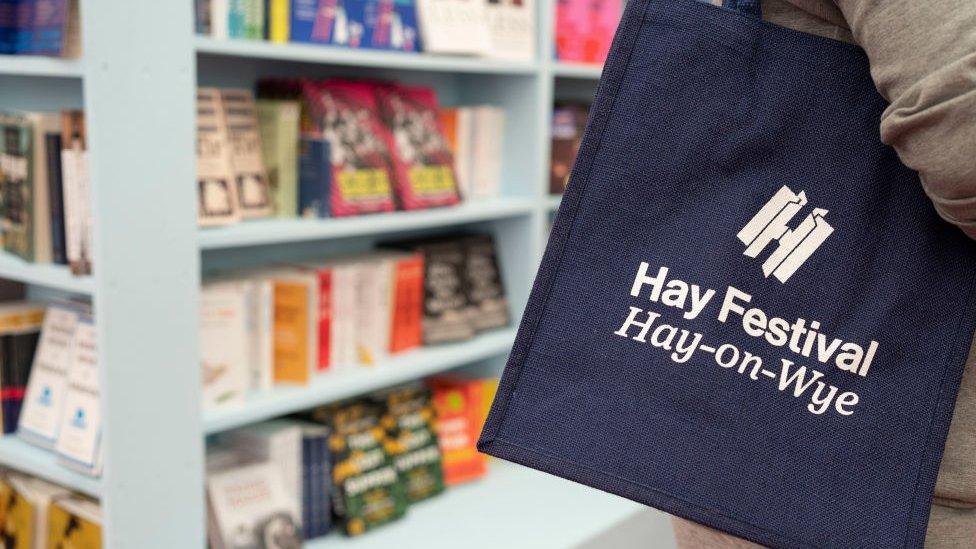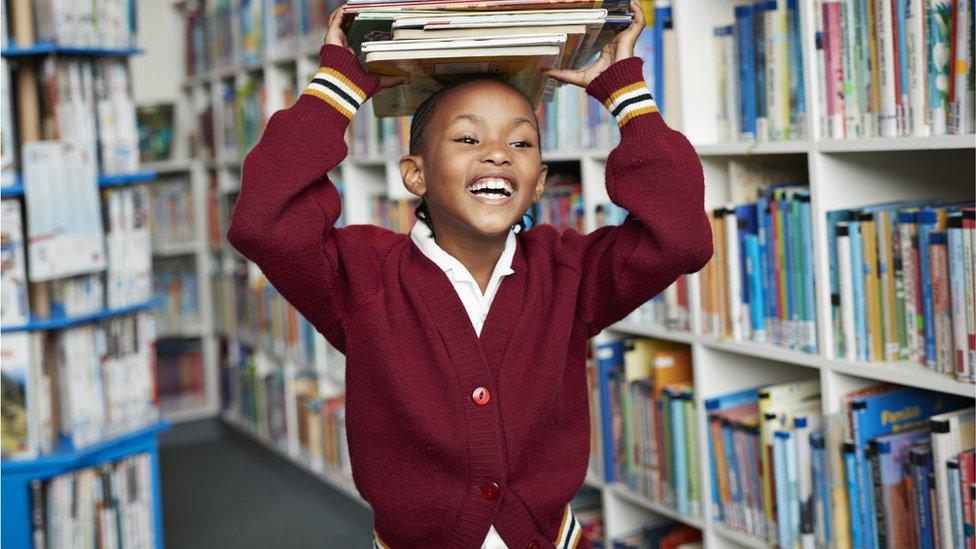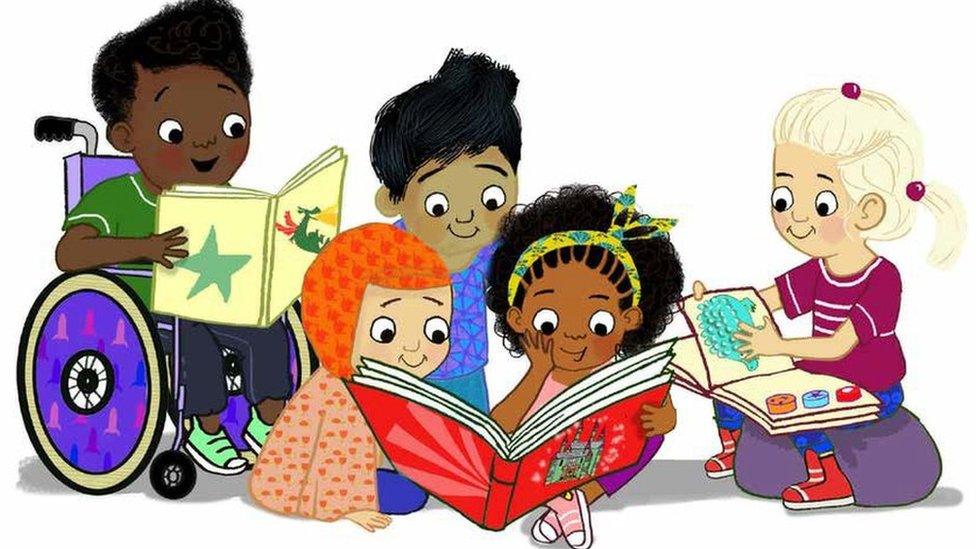Are the words in classic children's books too complicated to read?
- Published
- comments

Do you find that you're not sure what some of the words in children's books mean?
Well, you're not alone, as a group of famous authors have been discussing how some classic books can be a bit of a challenge for young readers today.
The writers, including the children's laureate Joseph Coelho, Cressida Cowell and Frank Cottrell-Boyce, were speaking at the Hay Festival when they were asked if there was a danger that the language in older books would put kids off from reading them.
Take the quiz below to see if you know what these words mean from classic children's stories!
If you cannot see the quiz, click here.

Joseph Coelho has been the Waterstone's Children's Laureate since 2022, which recognises the best talent in children's writing
The children's authors agreed that some classic books, such as Wind in the Willows and Treasure Island, might be a bit daunting for newer readers, but that shouldn't stop kids from giving them a go.
Poet Joseph Coelho said that it's OK not to know what some words mean, and that people shouldn't be afraid to use dictionaries to find out.
Joseph said: "I loved dictionaries when I was a kid. I loved looking up words and discovering them for myself, and that really helped with my reading."

The Hay Festival of Literature and Arts celebrates writing and runs every year
Whilst agreeing that "reading The Wind in the Willows out loud is a task", Frank Cottrell-Boyce said that children shouldn't have to understand every line in a book to enjoy reading it.
The writer of Millions and Cosmic compared these books to pop songs, rather than to older stories such as plays written by Shakespeare.
Frank said: "Nobody sits there saying, now before you listen to this song, you have to understand what this lyric actually means. You're just carried away in a song. Maybe you don't have to understand every word."
What are your favourite stories to read? Would you stop reading a book if you didn't understand the words they were using? Have your say in the comments!
- Published26 May 2023

- Published4 March 2024

- Published14 November 2022

